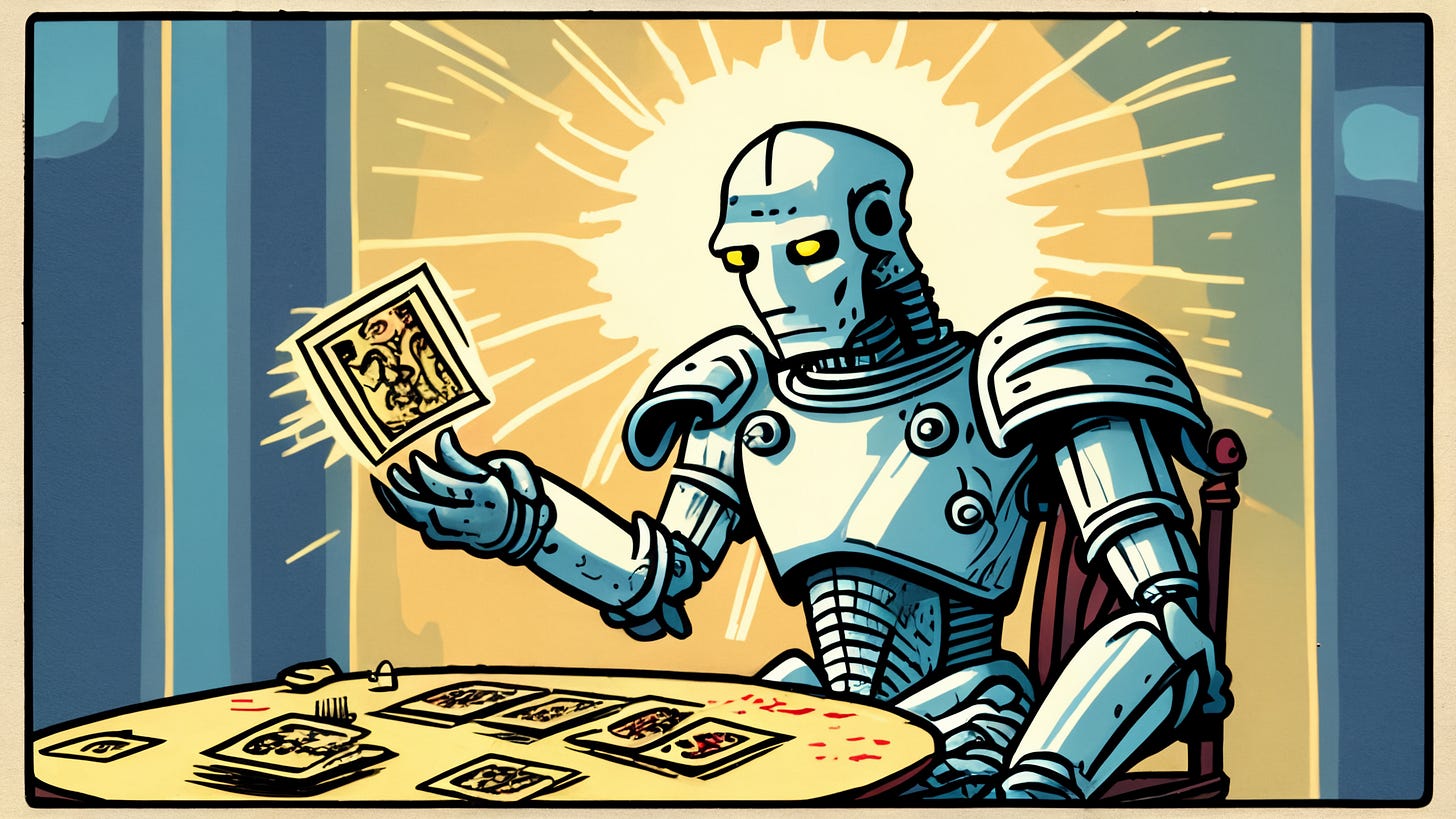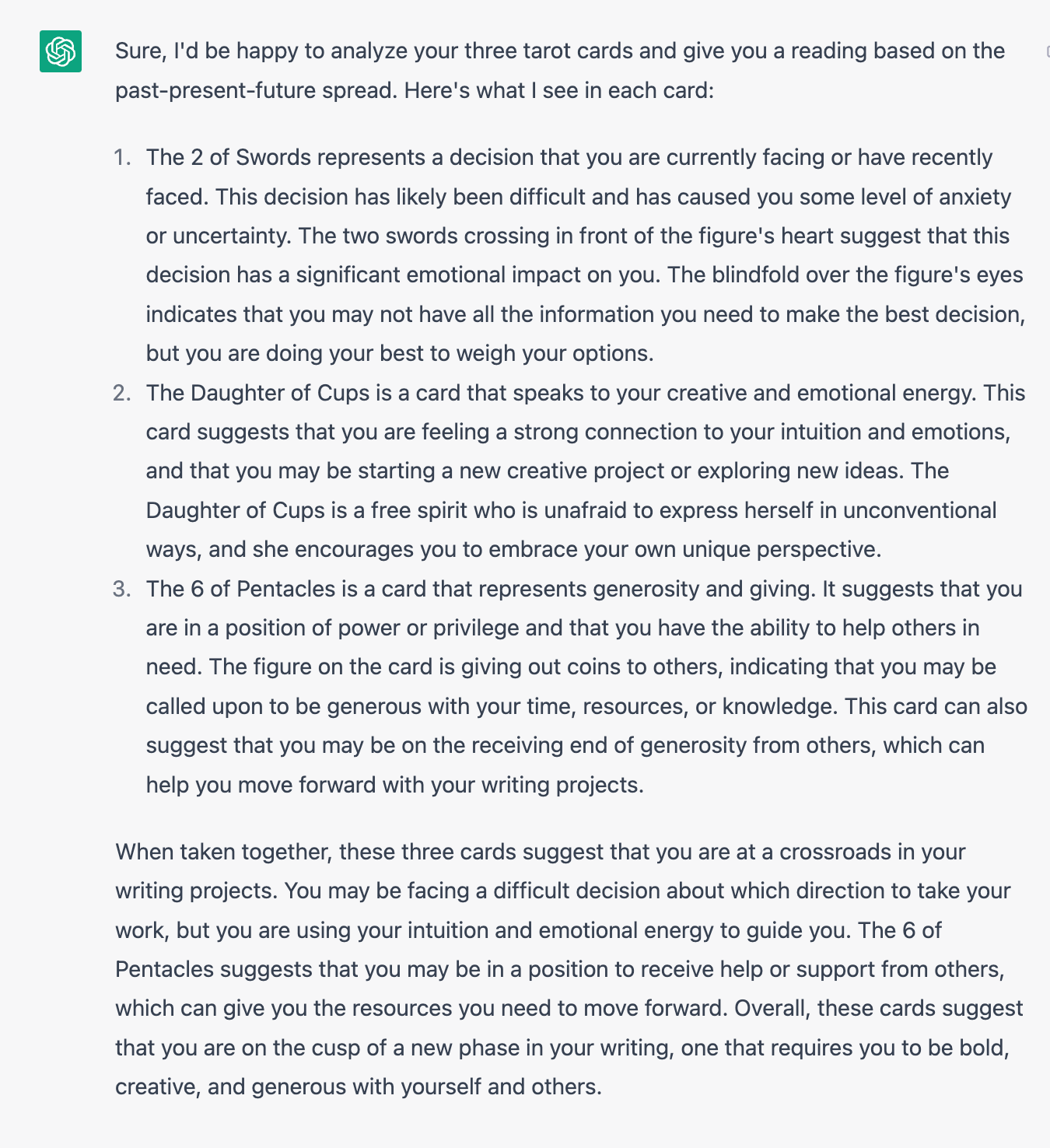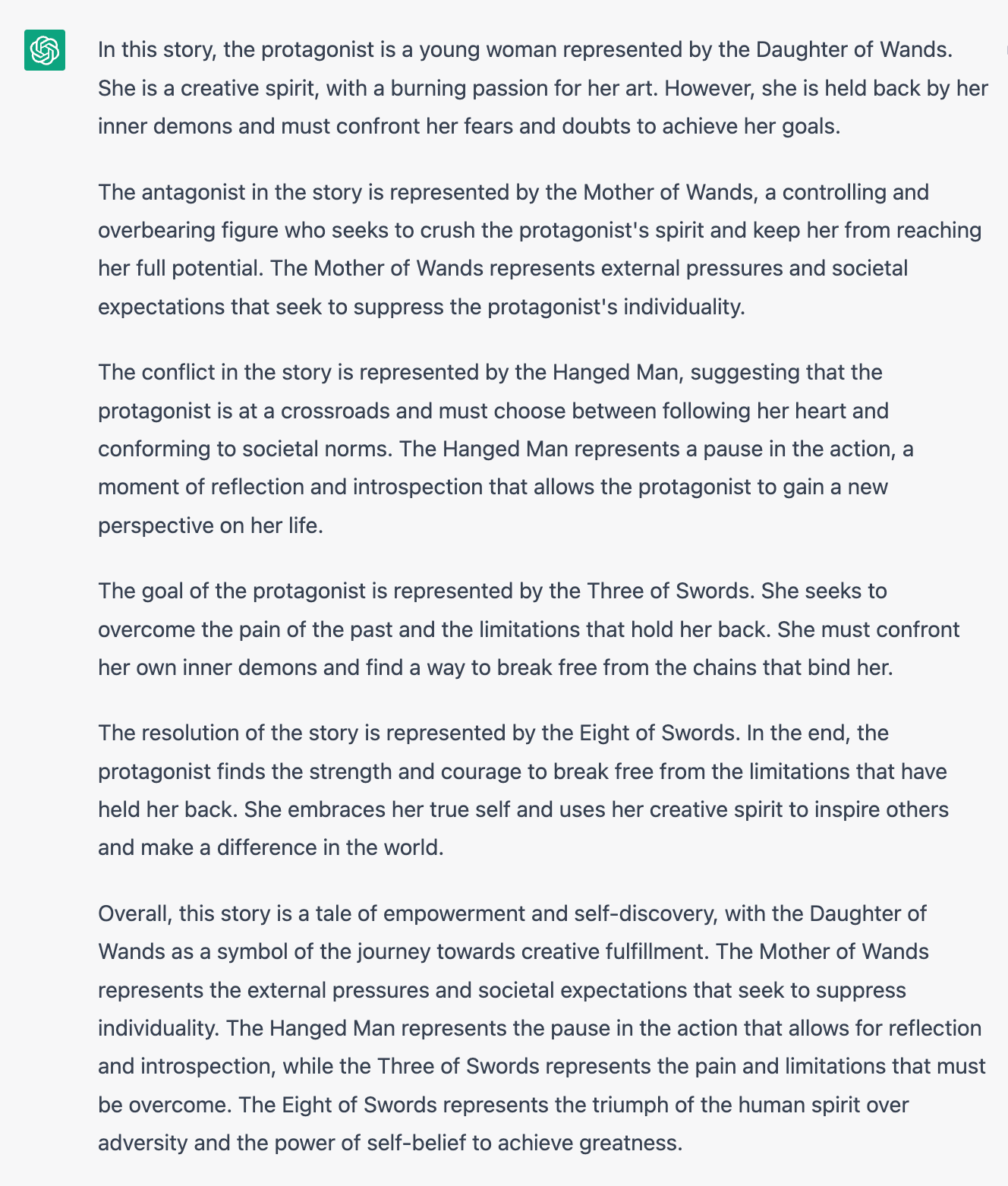ChatGPT: My Writing Sidekick
How AI helps me work smarter, not harder
In this installment of Story Cauldron, I return to a subject I’ve spent a lot of time reading about and using: generative AI. In particular, I want to explore a few unusual uses for ChatGPT, the chat AI that everyone’s talking about.
A lot of writers worry that ChatGPT will either flood the market with garbage or will take away all the writing jobs—or both.
As generative AI that can create (or manipulate) written content, it’s a system that’s capable of many things, and it’s appropriate here to suggest that with great power comes great responsibility. Just as an ethical writer would not steal someone else’s work and pass it off as their own, so too an ethical user of AI will find ways to use the technology as a tool to help them with their work rather than find ways to employ the AI in exploitative or creepy ways.
So while some people are using ChatGPT to write and publish garbage on Amazon, and some publishers like CNet are turning to generative AI to write their articles, there are ways to use AI responsibly as a tool for writers and other creative folks.
How I use ChatGPT
As both a fiction author and nonfiction writer, I have found a ton of ways to use ChatGPT to ‘work smarter, not harder.’ Here are just a handful of the ways I’ve found AI helps me get the job done faster.
Creating a list of calls to action for blogs
Summarizing articles for research
Crafting article titles
Making writing prompts
Writing press releases
Revising and enhancing “about me” content
Of course, whenever I use AI in these ways, I always review and revise the output if I’m going to use any of it in a piece I’m writing.
As I’ve used it, the key to success is giving ChatGPT as much information as possible rather than relying on the information in its databases. The more it knows about my project, the better the output.
Using AI to help find new books
I don’t just use ChatGPT for work or projects. I’ve discovered that it can also do some really interesting things.
If you’re looking for a new book (or comp titles for a book you’ve written), you can ask ChatGPT for a list of books that include certain themes, plots, or genres.
Combining tarot and ChatGPT
Combining ChatGPT with tarot cards can be a great way to learn and expand your knowledge of tarot. It can also be a fun way to brainstorm new stories.
For example, here’s how it can work for a straightforward tarot reading. I pulled three cards and asked it to interpret them for me:
Here’s ChatGPT’s response:
You can even ask ChatGPT to randomly choose tarot cards for you if you don’t have a deck handy.

You can also use tarot cards to randomly assign character and plot points for a potential story. Here’s an example. I pulled cards representing a protagonist, antagonist, conflict, protagonist goal, and story resolution, and asked ChatGPT to generate a potential story synopsis based around those cards.
ChatGPT can help refine ideas
One other way I love using ChatGPT is to help me focus and refine my ideas. It could be for an article or a novel. For an article, if I give it what I’ve written so far, it can help give me talking points I hadn’t considered, or expand on a section that seems too thin.
And with fiction, it can be the best writing partner ever. I’ve given it the main characters and plot points of a novel in progress and asked it to help me figure out how my main character could save the day given her skillset. I’ve taught it details about my novels, such as the main plot points and character sketches and then asked it to retell the story from different points of view (including my antagonist) and in different genres.
Learn more about how writers use ChatGPT
Recently I was part of a discussion with Nicole Rivera, Susie Evans Taylor, and Heather Huffman about how we use ChatGPT. Check it out at Stop Writing Alone. It was an interesting discussion that covered a lot of different ways AI writing tools can be used to help writers.
Have you used ChatGPT?
I’d love to hear how you've used it and if you’ve found other ways to boost your productivity or get new ideas for your writing.
And if you haven’t used it, you can give it a whirl for free. You have to sign up for a free Open AI account, which prompts you to create a free ChatGPT account. (I just connected with Google for both, so it took seconds to sign up.) I use it often enough that I sprung for a paid account ($20 a month) which gives me priority access when a lot of users are online.








I love how you've embraced this and are (as always) so willing to share your experience and ideas in practical, encouraging ways. I attend a weekly meetup on generative AI, and a slightly revised version of quote I wrote down from one of the presenters a couple of weeks ago rings true here: "AI won't replace marketers. But marketers who use AI will replace those who don't." Swap marketers as you will… or ask ChatGPT to do it. ;-)
I had my whole worldview blasted open when I recently used ChatGPT to come up with a pair of brand new terms I'm going to introduce in an essay about ADD. I had to do the research, and give it the right prompts, but it came up with a solution it might have taken me weeks of pain and toil to get to.